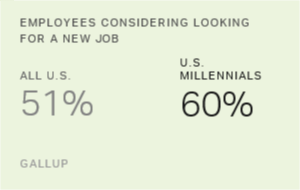As companies strive to improve their customer relationships, the smart ones are making this critical discovery: Their employees are essential brand ambassadors.
That's right: Essential.
Gallup Organization research underscores the vital importance of any company's human touchpoints, and demonstrates the powerful relationship between employee performance and customer engagement. People, Gallup researchers note, often make a huge difference in the strength of a company's customer connections. People are not the only factor in building customer relationships, of course, but their contribution is substantial and striking.
The problem is, far too many employees have no idea what their company's brand promise is, even though they're supposed to be "living" it. And companies don't seem to care enough about keeping this promise to hold managers accountable for their employees' promise-keeping performance.
In fact, according to some figures we have seen in non-Gallup studies, a frighteningly low percentage of the average company's workforce, perhaps as low as 5%, actually understands the company's strategy. And because a company's brand promise is a manifestation of its core business strategy, as few as one in 20 "brand ambassadors" can articulate the company's customer promise. In addition, very few companies pay their managers an incentive based on how well they keep the brand promise and fulfill the company's strategic objectives.
Empty promises
Companies invest considerable time, money, and brainpower searching for a brand promise that will differentiate them from the competition. But what good can come from this investment if employees can't translate the results into their customer interactions? How can companies expect employees to be "brand ambassadors," if the vast majority of them don't understand what the promise is or what living that promise actually means?
No employee can be counted on to keep a brand promise if that promise is either unclear or unknown. That's how powerful promises wind up becoming empty promises. Failure to articulate the brand promise -- not just to the customer, but also to every employee who interacts with customers -- completely negates its potential power.
For companies, what's even more unsettling about the brand-promise fulfillment problem is that developing employee awareness of a company's brand promise is just the first step. Companies can take this step by telling their employees what the promise is. Keeping the brand promise requires more than mere awareness of it. Gallup research has shown that keeping the promise requires employees that have product and process competence combined with vital and highly individualized customer-handling talents.
Do employees make a difference when it comes to building relationships? Are they truly powerful "brand ambassadors"? In a word, yes.
For example, Gallup has found that customers who felt a company's fast food employees stood out were anywhere from five to six times more likely to hurry back to that brand. In fact, these stellar employees proved to be a more powerful driver of customers' intended return than the taste or the price of the burger. Similarly, at banks whose employees were felt to stand out -- regardless of whether customers encountered those employees over the phone, in person, or through a Web site -- customers were six to 20 times more likely to want to continue or repeat the relationship.
In other recent research, Gallup's analyses revealed that company employees are typically one of the essential keys to establishing a "passionate," and enduring and highly profitable, connection between the company and its customers. Customers who judged an automaker's dealer sales and service representatives as exceptional were 11 times more likely to be passionate about the brand. Customers who praised a mass retailer's store-level associates were about 16 times more likely to be passionate about their brand. Other industries revealed the exact same patterns. Employees can make, or break, the customer relationship.
Opportunity knocks
Companies have important opportunities for brand-building wherever, whenever, and however they interact with customers. A company's employees constitute a crucial resource for capitalizing on those opportunities. But marketers will never maximize this potential resource if the vast majority of employees don't know what brand promise they are supposed to be keeping -- and if they aren't educated, empowered, and energized to deliver.
"Living the brand" is an intriguing concept, with what should be a very powerful payoff to any marketer. But it's still only a concept, unless employees understand the brand promise and act on it in every customer contact. And there can be no real payoff if companies fail to put in place ongoing programs that inform and challenge front-line employees to fulfill their potential as brand ambassadors.
"Living the brand" must be more than a slogan. It must move from the boardroom to the checkout line, the teller line, the service counter, and the dealer showroom. Only then can the power of the promise be realized. At the moment, the vast majority of this potential is untapped.
